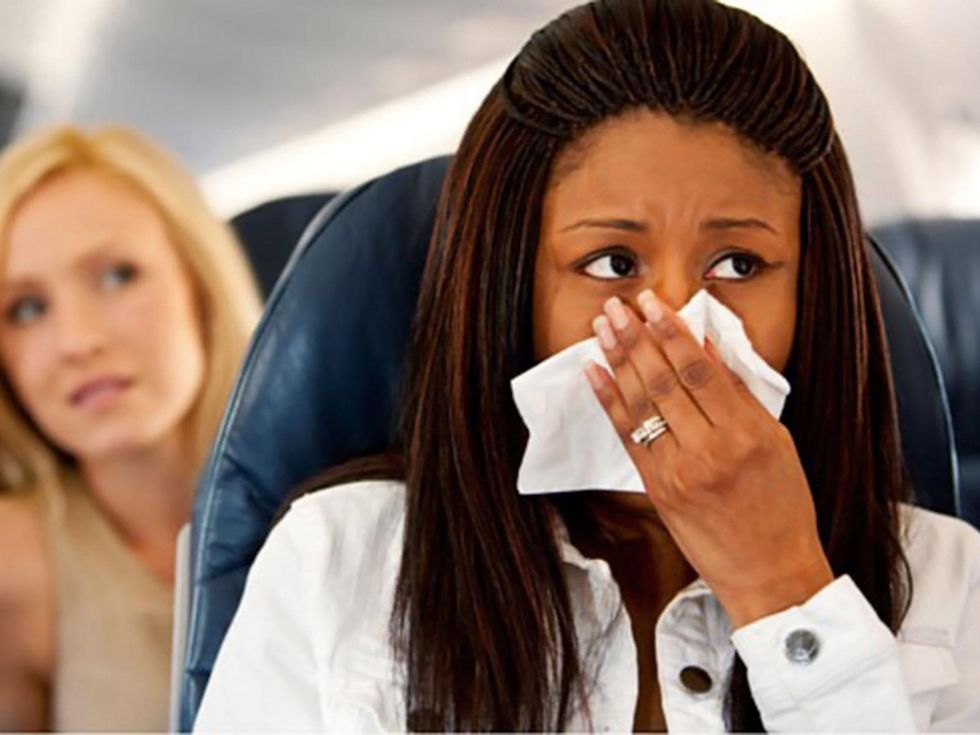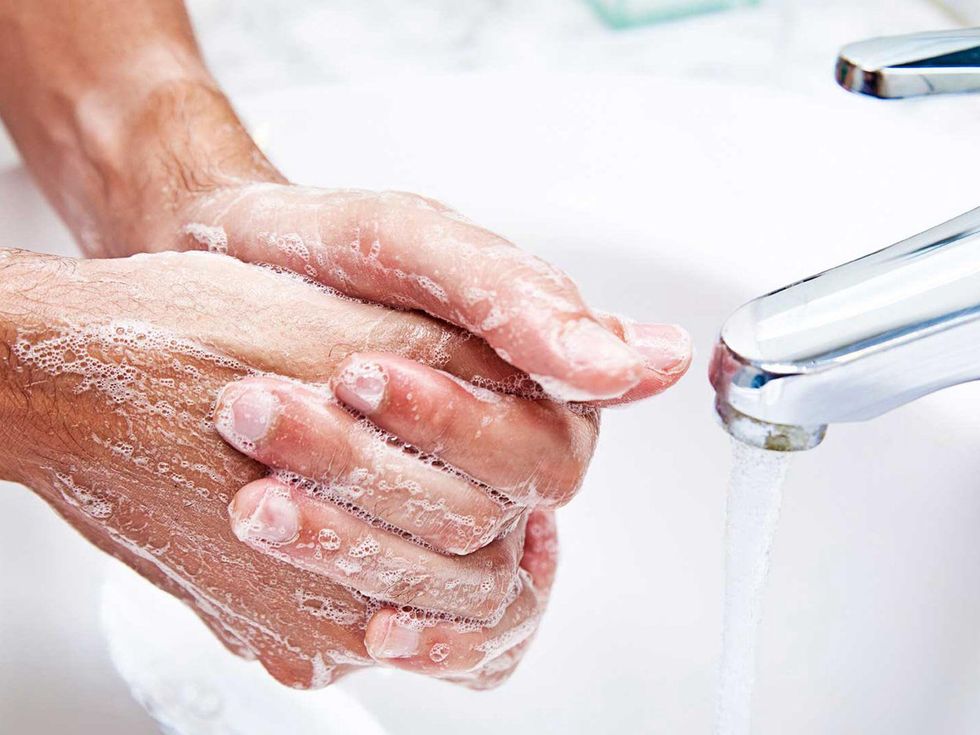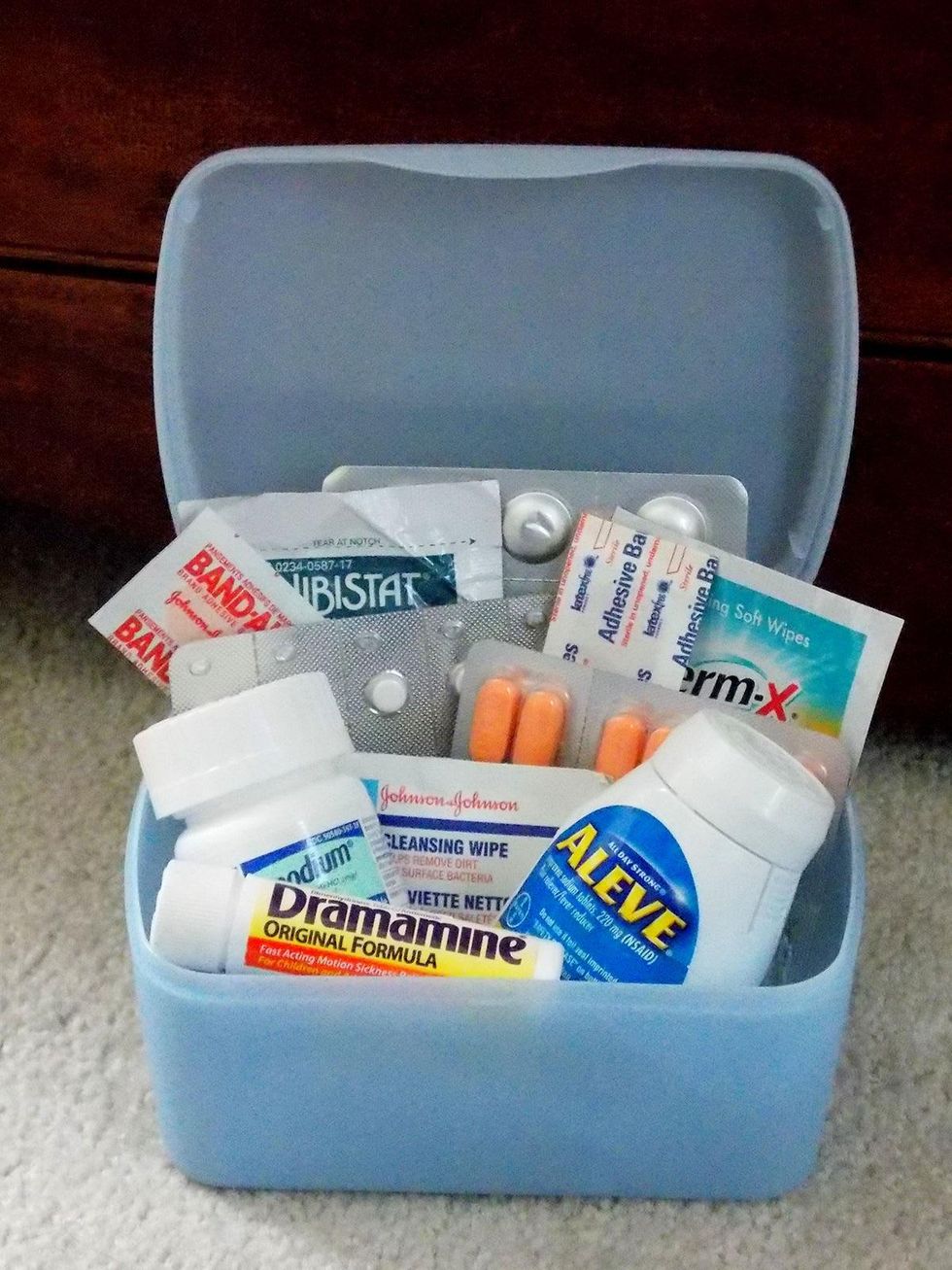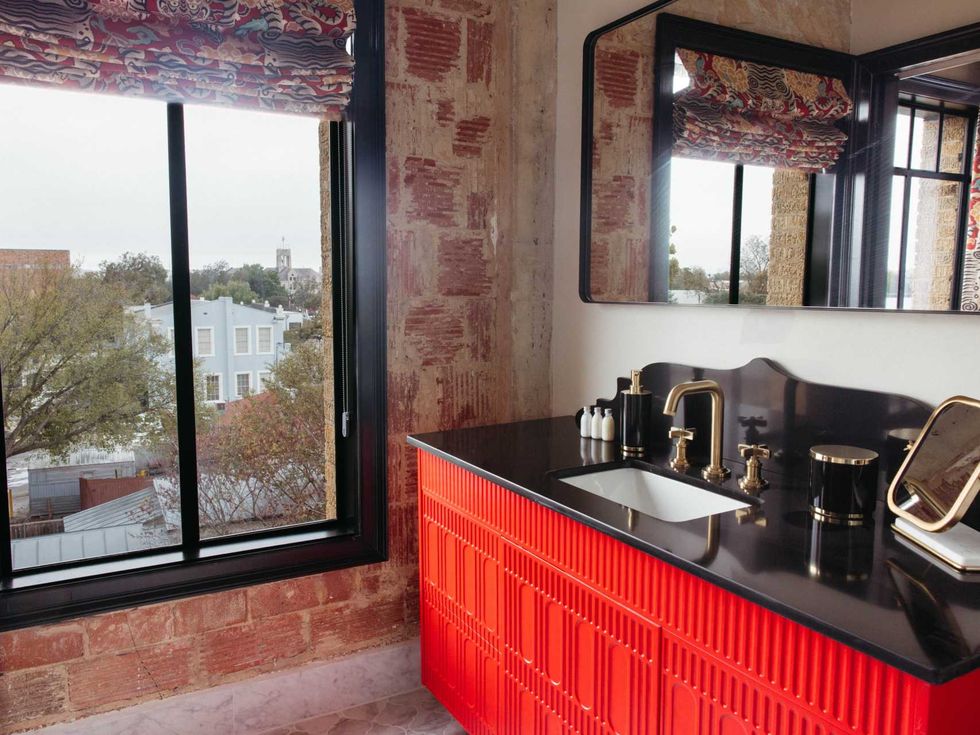1. Prepare
Pack as if you might get sick. Most physicians will prescribe antibiotics for long-time patients. Don’t be caught without them, especially if you are traveling outside of the U.S. If you get occasional migraine headaches, don’t leave home without your medication. If you travel frequently there is no reason not to get a flu shot.
2. A pound of prevention
A physician Facebook friend believes that travelers’ best weapon against illness is to wash their hands frequently. As for people who wear masks, my friend commented that they look like kooks and the masks offer no proven benefit unless it contains a micro filter and seals around your face. Other travelers believe that germs are spread by airplane tray tables and are quick to use Purell and sanitizing sprays. One friend who rarely gets sick refuses to touch the seat back pockets or use the airplane restrooms.
3. Safety in numbers
It is frightening to be out of town in a weakened state and wondering how you will get to your business meeting, deposition or presentation. Many years ago, my partner and I were heading to Atlanta for a “beauty contest” to compete for a new client. Midway through the flight he turned a peculiar shade of green and became dizzy. When we landed, we knew he would not be able to get through a new client presentation and he got back on the plane and returned to Houston. If he had been by himself, I’m not sure what would have happened. The thought conjures up some unpleasant images. Similarly, if you do become ill, it is nice to have a co-worker who is available to get you to a doctor, pick up a prescription or otherwise help.
4. Stay in hotels with resources
The further away from home you are, the more important it is to stay in a hotel that has access to doctors or healthcare facilities. Most major hotels that cater to business travelers have doctors available. Some will even make house calls — for a price.
5. Pace yourself
Many of my friends who travel internationally advise knowing your body and respecting its limits. An international trade executive recently traveled to Dubai, Abu Dhabi and Kuwait before returning to Nashville four days later. He commented that after two days of nonstop activity where he ran on adrenaline, he listened to his body shouting “enough” and took off the next day, sleeping 10 hours and working at a slower pace. My friend commented that it is important to eat healthily and drink alcohol minimally until your body has adjusted to the new time zone.
6. Be willing to improvise
If you find yourself sick on the road, do not wait to get help. If you don’t want to see a hotel doctor, do you have co-workers in that city who might recommend a doctor? Those with today’s typical social media contacts should be able to mine them for medical resources. One colleague writes about taking her young children to Disneyland where she became violently ill. She hired a nanny through the hotel who took her kids to the attractions. Another friend paid restaurants to deliver chicken soup.
7. Don’t be cheap
If you can’t get home immediately, don’t avoid seeing a doctor merely because the physician is not in your healthcare network. While you might not want to spring for a house call (which was going to be over $1,000 at my hotel in Japan), get medical care. Similarly, don’t rush home just to avoid the cost of extra nights in a hotel. Many friends wrote of riding out their illness in hotels while others talked about the psychological value of getting home to recover in their own bed.
8. Don’t beat yourself up
When I get sick, I tend to wonder where I slipped up. Was it failure to get a flu shot, not wiping down the tray table or working too hard? Most of my friends comment, “Well, of course you are sick, you work too hard, spend too much time on planes. How can you not be sick?” While working too hard, flying too much and not taking precautions can make you catch a bug, you can also get a bug if you are home, get eight hours of sleep, take vitamins, etc. Sooner or later everyone will get some type of bug.









 The bathroom's color scheme is a subtle nod to 1920s Art Deco.Photo by Garrett Smith/Giant Noise Partners
The bathroom's color scheme is a subtle nod to 1920s Art Deco.Photo by Garrett Smith/Giant Noise Partners